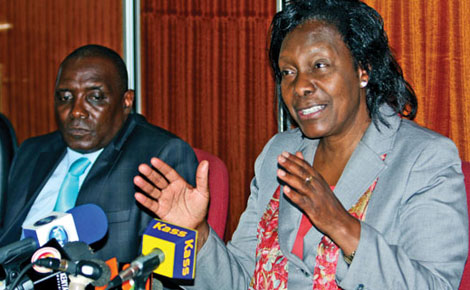×
The Standard e-Paper
Join Thousands Daily
 |
| Lands Cabinet Secretary Charity Ngilu (right) and National Land Commission (NLC) Chairman Mohammed Swazuri. |
By HAROLD AYODO
NAIROBI, KENYA: Real estate investors must be feeling confused about who has the mandate to issue title deeds. And with Lands Cabinet Secretary Charity Ngilu and National Land Commission (NLC) Chairman Mohammed Swazuri having publicly differed numerous times over the matter, it seems land administration is going to the dogs.